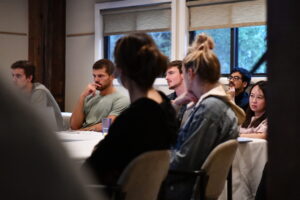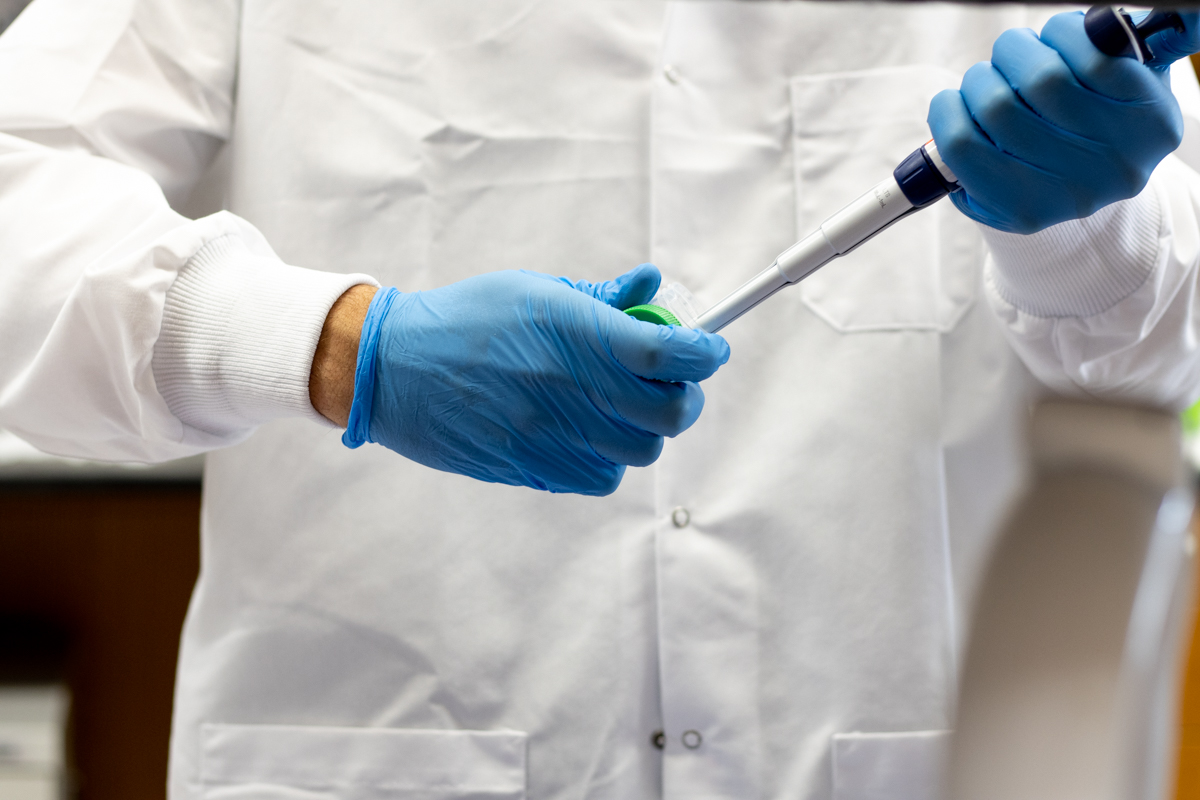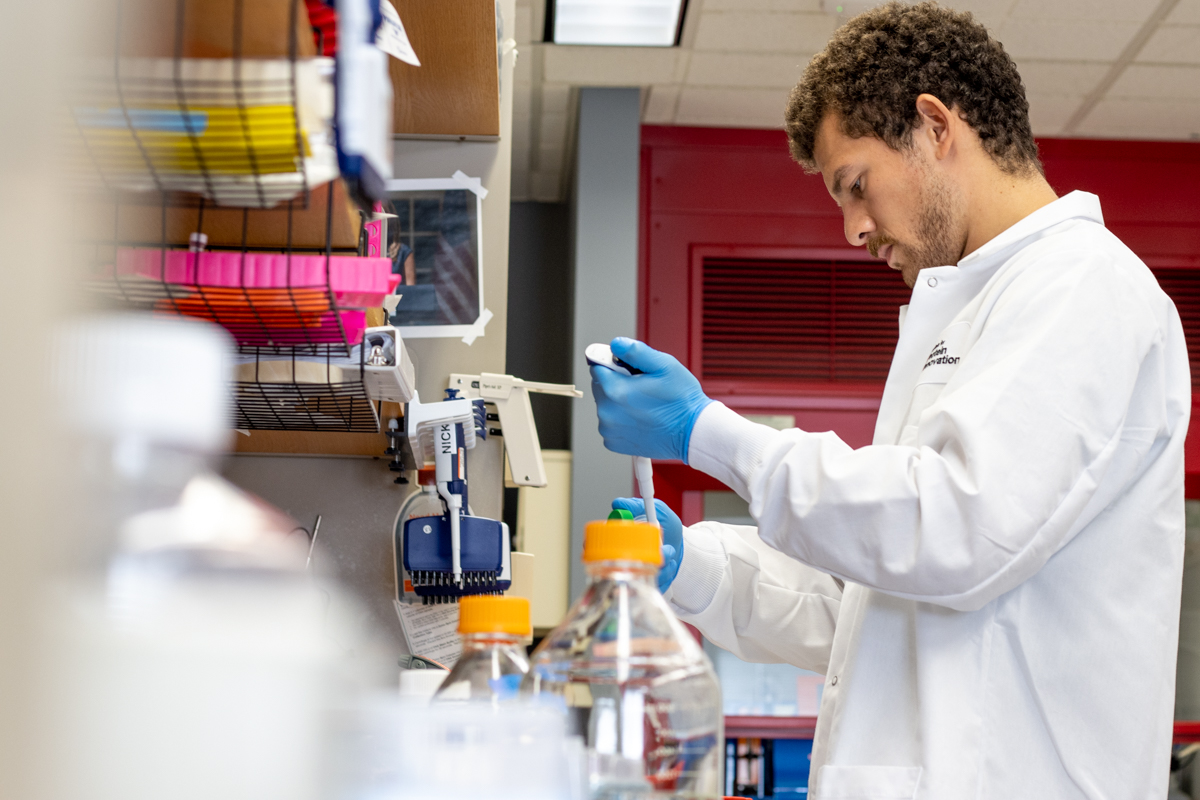For IPI research associate Youssef Atef AbdelAlim, science is synonymous with patient care. He’s run antibody discovery sorts, engineered protein libraries and performed fluorescence microscopy. He’s rounded the clinics, organized vaccination appointments and assisted with cardiac care. At every stage, he’s seen how science and medicine intertwine.
After a year and a half at IPI, he’s now headed to medical school to focus now on patient wellbeing as he fulfills his dream of becoming a physician.
“The connection between science and people is what drew me in,” he says. “Seeing patients recover, it’s just really fulfilling.”
“The science of us”
As a youngster in Cairo, Egypt, then Worcester, Massachusetts, Atef AbdelAlim loved engineering and mathematics. His parents, passionate about medicine and science, encouraged him to channel these interests into biology. Atef AbdelAlim remained in Massachusetts to pursue bioengineering and biochemistry at Northeastern University. He was drawn by their cooperative education program that integrates experiential learning as part of the four-year degree.
During one six-month internship, Atef AbdelAlim joined Ultivue’s research and development team, working on fluorescence microscopy imagery of immune cells in cancer tissue. He gained experience with antibodies, DNA and cancerous tonsil tissue — which encouraged him to “explore medicine more,” he says.

He began devoting time to extracurricular research and volunteered at a Tufts Medical School remote call center, where, during the depths of the pandemic, he helped organize more than 10,000 COVID-19 vaccination appointments for Boston residents. He also shadowed brain surgeons and anesthesiologists back in Cairo, as part of his family’s annual trips back to Egypt.
He learned a critical reality of modern-day medicine: “Doctors don’t spend a ton of time with patients,” he says, “but the impact they have on these people is huge.”
He spent his next co-op in the cardiac surgery unit at Brigham and Women’s Hospital (BWH) researching the efficacy of mitral valve regurgitation repair surgery, an operation that repairs a connection between the two left-side chambers of the heart. At BWH, he worked directly with patients for the first time. While sitting in on one heart surgery, he had the opportunity to touch a beating heart.
“It’s the realest it gets,” he says. “This is the science of us.”
Contributing to protein science
In 2022, after graduation, Atef AbdelAlim wanted another perspective on medicine. He applied for a job at IPI, drawn by the Institute’s open science outlook and its mission to advance protein science in the form of antibody discovery, which he saw as playing a major — if often obscured — role in overall health goals.
“IPI is not making drugs, per se, but we’re helping to make those things eventually,” he says. “I thought that would be a cool way to contribute to human health.”
As part of the antibody discovery team, Atef AbdelAlim helped grow IPI’s yeast display library, run fluorescence-activated cell sorting and carefully winnow billions of antibodies down to just a few prime, well-binding antibody candidates. Along with director of antibody discovery and library design André Teixeira, scientist Deepash Kothiwal and senior research associate Nick Hollmer, he also reengineered the IPI yeast library to better mimic the naïve B cell repertoire of the human immune system — an exploratory project that took the better part of a year.
“The most exciting moment was when we finished the last piece of [the library], the last germline combination,” he says.

While spending his days in the lab, Atef AbdelAlim was studying for the MCAT, sending applications to more than 30 medical programs and attending zoom interviews across the U.S. and Canada.
“The application to medical schools is definitely a marathon,” he says. “Everyone has been super supportive here.”
An end to the marathon
In fall of 2024, Atef AbdelAlim will attend the Hackensack Meridian Medical School in New Jersey. He hopes to pursue cardiac surgery, but for the time being, he’s keeping the door open to other specialties.
Although research and antibody discovery will no longer be his day-to-day focus, he’ll bring an in-depth understanding of antibodies and the many steps necessary to build effective therapeutics. Additionally, he’s taken IPI’s experimental, scientific mindset to heart.
“Curiosity is an important skill they teach here [at IPI]. It’s important not to be shy to learn,” he says. “You’re only going to learn by making mistakes.”
Source: Youssef Atef AbdelAlim, LinkedIn
Writer: Caitlin Faulds, caitlin.faulds@proteininnovation.org
About IPI
The Institute for Protein Innovation is pioneering a new approach to scientific discovery and collaboration. As a nonprofit research institute, we provide the biomedical research community with synthetic antibodies and deep protein expertise, empowering scientists to explore fundamental biological processes and pinpoint new targets for therapeutic development. Our mission is to advance protein science to accelerate research and improve human health. For more information, visit proteininnovation.org or follow us on social media, @ipiproteins.


